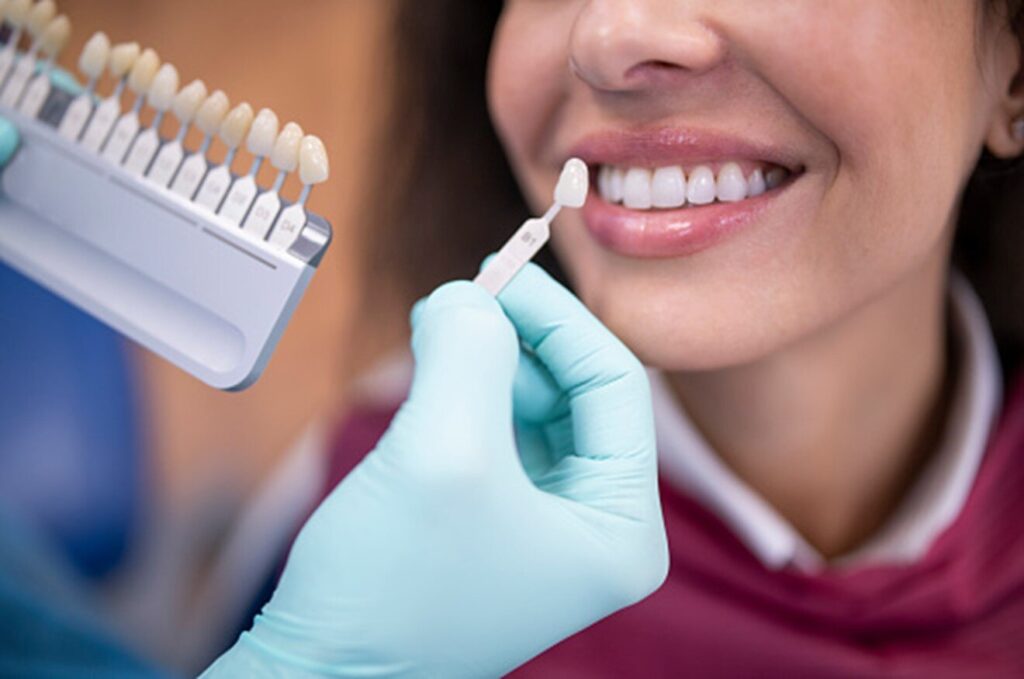How to Keep Your Dental Implants in Good Condition
How to Care for Your Dental Implants
Dental implants are a safe, comfortable, and effective solution for missing teeth. When you properly care for your dental implants, they can last for decades. Maintaining a consistent oral hygiene routine, following a healthy diet, avoiding risky lifestyle choices, and visiting your dentist regularly for post-dental implant care can significantly extend the lifespan of your implants and protect your oral and overall health. Here is your ultimate guide to properly caring for your dental implants.

Brush & Floss Regularly
Maintaining a consistent daily oral hygiene routine is one of the most important elements of dental implant aftercare. If you don’t properly care for your teeth and gums, your dental implants will not last as long, and you may develop health problems that affect their longevity and the health of your remaining natural teeth. Your oral hygiene routine should include:
- Brushing at least twice per day or after each meal
- Rinsing your mouth out with water after consuming high-sugar foods and beverages
- Flossing at least once per day using an interdental brush or implant-specific floss
- Using an antibacterial, cavity protection, or fluoridated mouthwash twice per day after brushing and flossing
- Using a toothpick to clean around the implant posts to remove plaque and debris
- Using an oral irrigator if recommended by your dentist
Use the Right Tools for Cleaning
Your dentist will recommend specific tools for home care for dental implants. Using the right tools will protect your implants from damage and help you avoid injury to your natural teeth and gums. The most important implant cleaning tools are:
- Toothbrush – You should use a regular soft-bristled toothbrush to clean your natural teeth and dental implants. Brush gently twice per day with an implant-safe toothpaste to remove food particles, plaque, tartar, bacteria, and other buildup.
- Interdental Brush – An interdental brush looks like a small bottle brush or pipe cleaner. It is used to clean between your teeth and remove plaque.
- Water Flosser – A water flosser is another safe, gentle way to clean between your natural teeth and implants and remove harmful buildup.
- Toothpicks or Dental Picks – Your dentist can recommend safe toothpicks or dental picks that you can use to remove food particles and other buildup from between your teeth.
Attend Regular Dental Checkups
You must visit your dentist twice per year to protect your dental implants and your overall dental and oral health. Your dentist will advise you on how to properly care for dental implants and recommend the right tools and products. They will perform a thorough dental exam and may take dental x-rays to look for early warning signs of problems. They will also perform professional dental cleanings and offer other preventive dental care.
Avoid Hard or Sticky Foods
Eating or chewing on hard or sticky food can damage your natural teeth or implants. These foods are also more likely to get stuck between your teeth and harbor bacteria, which can lead to tooth decay, dental cavities, or tooth loss.
Quit Smoking or Using Tobacco Products
Using tobacco products can increase your risk of oral cancer or other types of cancer. Smoking and using tobacco products can also slow healing, making it hard to recover after dental implant surgery. You have a higher risk of implant failure or problems like bleeding gums, swelling, pain, and infection. Your dentist can recommend tips or resources that will help you quit smoking.
Be Mindful of Teeth Grinding
If you have a history of bruxism or teeth grinding, your dentist will recommend specific dental implant care after surgery. You may need to wear a mouthguard while you sleep to protect your teeth and jaw from damage or injury. If your teeth grinding is due to stress, you should practice stress management techniques.
Stay Hydrated & Maintain a Healthy Diet
Water naturally flushes out bacteria from your mouth. If your mouth is dry, harmful bacteria can spread and increase your risk of bad breath, dental cavities, tooth decay, infection, and gum disease. Stay hydrated and drink plenty of water and clear fluids, especially during the summer or while exercising. Following a healthy diet will protect your oral health and overall health and reduce the risk of problems that could affect the lifespan of your implants. Avoid foods and beverages high in sugar, and increase the amount of fresh, whole fruits and vegetables in your diet. Make sure you get enough fiber and protein. If you eat meat, stick to lean meats and fish.
Avoid Using Your Implants as Tools
Do not use your dental implants or your natural teeth to open packages. Don’t chew on pens or other items, and avoid chewing ice or crunching on hard foods or candies. Using your implants as tools can increase your risk of tooth damage like cracks and chips, and can also risk injury to your gums or other parts of your mouth.
Address Any Issues Promptly
If you notice any signs of problems with your dental implants, contact your dentist right away. Waiting too long will allow the problem to get worse and more painful or dangerous. Your dentist can assess the underlying cause of your problem and offer effective solutions to preserve your oral health and the lifespan of your implants.
Call Donahue Dental to Make an Appointment for Dental Implants
At Donahue Dental, Dr. Donahue is an experienced prosthodontist who specializes in tooth replacement, full mouth reconstruction, dentures, and dental implants. He can help you determine if you are a good candidate for dental implants and provide ongoing dental implant care and maintenance. Call us now or contact us online to schedule a consultation for dental implants.
